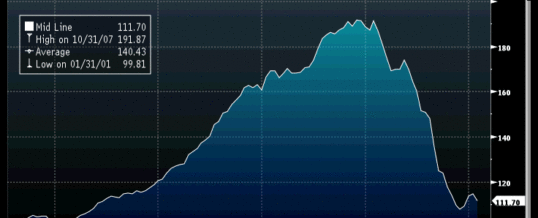
An über-review of the crisis.
A finance professor turns to literary analysis.
Jan 14th 2012
Republished from “The Economist”
IT BEGAN as a review of three books on the financial crisis for a wonky journal. Currently, the book count stands at 21 and although the official publication date is still in the future, the draft* already has a life of its own in policymaking circles.
In 2010 Andrew Lo, a professor at MIT’s Sloan School of Management, was asked by the Journal of Economic Literature to write a review of three or four of the more important academic books on the crisis. The initial sample, he thought, was too small. There were lots of useful books on the topic, from journalists as well as academics. Widening the spectrum would also highlight areas of disagreement between authors.
In that, he certainly succeeded. Among the more minor debates is when the crisis began: was it 2006, when America’s housing market peaked; 2007, when money-market liquidity froze; or 2008, when Lehman Brothers collapsed? But the biggest source of contention is over what caused the wheels to fall off. Several of the books blame Fannie Mae and Freddie Mac, America’s housing-finance giants. Others cite everything from global capital flows, lousy regulation and shareholders’ incentives to regulatory capture, inequality and “predatory borrowers” who gamed the system to extract credit.
More disturbing still is that even some basic facts are not agreed upon. Mr Lo cites one trope as an example: that a rule change by the Securities and Exchange Commission in 2004 allowed broker-dealers in the United States to take on lots more debt in the run-up to the crisis. In fact, he writes, the rule change did not undo any restrictions on leverage, and some had higher debt ratios in the late 1990s than in 2006.
Even in the best of circumstances, understanding the crisis would be difficult, Mr Lo writes. Many of the people who were well-placed to see what happened have reasons to shift blame. And the financial system is extraordinarily complex. The review will not satisfy those looking for definitive answers. But that is the point. “My goal was to expose economists to the breadth of explanation, in the hope of sparking enough cognitive dissonance and annoyance to have them dig deeper,” he says. He should keep adding to the book count.
* “Reading About the Financial Crisis: A 21-Book Review” by Andrew Lo
Download the review at www.argentumlux.org
JAN

About the Author: